Air conditioners are necessary for many homes and workplaces when temperatures soar during the hot summer months. Making the best choice for your needs can be overwhelming with the wide variety of air conditioners on the market. Each type of air conditioner, including window, split, and portable models, has distinct features and advantages.
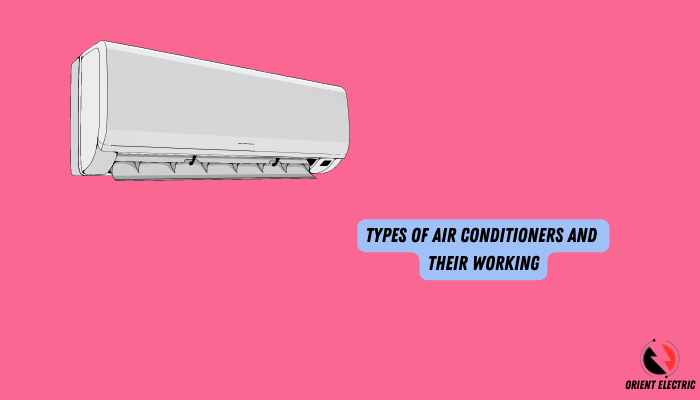
Depending on your cooling needs, budget, and room size, you can choose from different air conditioners in India. Let’s look at a few of the most well-liked air conditioner varieties in India in this article:
- Window air conditioners
- Split air conditioners
- Portable air conditioners
- Cassette air conditioners
- Tower air conditioners
- Ducted air conditioners
6 Types of Air Conditioners And Their Working:
1. Window AC:
In India, small to medium-sized rooms are frequently equipped with window air conditioners, a common type of air conditioner. One portion of these units should be placed inside the room, and the other should be placed outside when installed in a window. Window air conditioners are a standard option for many homeowners because they are inexpensive and straightforward.
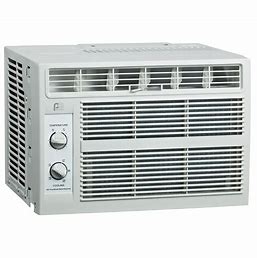
Pros
- Affordability: Window air conditioners are frequently more affordable than other air conditioners, making them a popular choice among consumers on a tight budget.
- Simple to set up: Because these units are intended to be installed in Windows, they can be set up without the assistance of a professional installer.
- Compact: Window air conditioners are an excellent option for rooms with limited space because they are typically smaller than other air conditioners.
Cons
- Limited cooling capacity: Due to their limited cooling capacity, window air conditioners are typically unsuitable for larger rooms.
- Limited features: Window air conditioners may have yet to have advanced features like timers, air purifiers, or smart controls compared to other air conditioners.
- Noise-making: Window air conditioners can make a lot of noise, which can be annoying, especially if you intend to use them at night or in quiet settings.
Window air conditioners are a good choice for those on a budget or those needing to cool small to medium-sized rooms. Despite possible drawbacks, their low cost and simplicity of installation make them a popular option for many homeowners.
2. Split AC:
Split air conditioners are a different style of air conditioner widely used in India. Instead of window air conditioners, split air conditioners have two independent units: indoor and outdoor. While the outdoor unit houses the compressor and other components, the indoor unit, installed inside the room, is in charge of cooling the air.
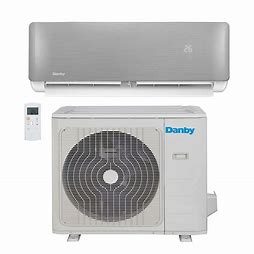
Pros
- Energy-efficient: Split air conditioners are more energy-efficient than window air conditioners, which makes them a long-term economical choice.
- Quiet: Split ACs are generally quieter than window air conditioners, thanks to the separation of indoor and outdoor units.
- More sophisticated features: Split air conditioners frequently include sophisticated attributes like timers, air purifiers, and smart controls that give users greater control over their cooling requirements.
- Better cooling capacity: Split air conditioners are a good choice for larger spaces because they have a greater cooling capacity than window air conditioners.
Cons
- Higher initial cost: Window air conditioners are frequently less expensive than split air conditioners, which may deter some customers.
- Professional help: Split air conditioners need professional installation, which can raise the overall cost. This is in contrast to window air conditioners.
- Frequent maintenance: Split air conditioners need routine maintenance, which can be time-consuming and expensive, to ensure optimal performance.
Split air conditioners are a fantastic choice for people who need to cool larger rooms and want more sophisticated features. Although they might cost more upfront and require professional installation, many homeowners favour them because of their energy efficiency and quiet operation.
3. Portable Air Conditioners:
The portable air conditioner is flexible and can be moved from room to room. These appliances frequently include a hose that vents hot air from a window or door, making installation and removal simple.
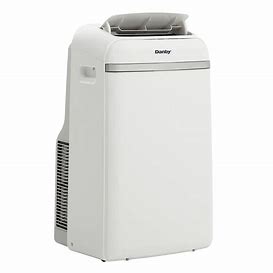
Pros
- Moveable: Portable air conditioners are a convenient option for people who need to cool multiple rooms because they are made to be moved easily from one room to another.
- No professional help: Portable air conditioners do not require professional installation, making them a less expensive alternative to split air conditioners.
- More energy-efficient than window units: Portable air conditioners typically use less energy than window air conditioners, which results in long-term savings.
Cons
- Limited cooling capacity: Portable air conditioners frequently need help maintaining ideal temperatures in rooms larger than 500 square feet and are unsuitable for cooling larger rooms.
- Noise: If you intend to use a portable air conditioner while sleeping or in a quiet setting, it may be unpleasant to hear it running.
- Bulky: Because portable air conditioners can be large and take up a lot of space, they can be an issue in cramped spaces like apartments or small rooms.
Portable air conditioners are a good choice for people who require a mobile cooling solution. Even though they might have some drawbacks, many homeowners favour them because of how simple they are to install and how energy-efficient they are. It’s important to remember that they might need to be more appropriate for larger rooms or spaces with demanding cooling needs.
4. Cassette Air Conditioners:
The air vents on cassette air conditioners are flush with the ceiling, giving them a discrete and unobtrusive appearance. They are installed at the top. Although they can be used in larger homes, they are typically used in commercial settings.
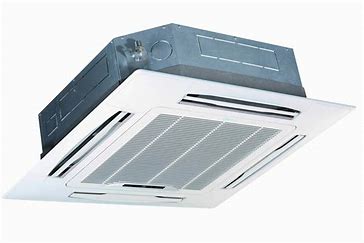
Pros
- Discreet installation: Cassette air conditioners are installed in the ceiling, making them a discreet and unobtrusive option for those who want a more seamless look.
- High cooling capacity: Cassette air conditioners can effectively cool larger areas, making them a good choice for larger homes or commercial buildings.
- Even cooling: Cassette air conditioners offer uniform cooling throughout the space, removing hot spots and guaranteeing constant temperatures.
- Quiet: Cassette air conditioners are built with an outdoor unit placed far from the building to minimize noise.
Cons
- Professional help required: Cassette air conditioners must be professionally installed, which can increase the installation cost overall.
- Lack of flexibility: Once installed, cassette air conditioners are fixed in place, which can reduce options for cooling particular spaces or rooms.
- Costlier: The higher cost of cassette air conditioners than traditional wall-mounted air conditioners can deter some buyers.
Cassette air conditioners are a fantastic choice for people looking for a discrete and unobtrusive cooling solution that offers even cooling throughout the room. They may be more expensive initially and necessitate professional installation. Still, they are a common choice for many commercial buildings and larger homes due to their high cooling capacity and quiet operation.
5. Tower Air Conditioners:
Tower air conditioners, also called column air conditioners, are a particular style of air conditioner that is tall and lean, with a compact design that can fit into smaller spaces. Smaller houses or apartments are typically where these units are used.
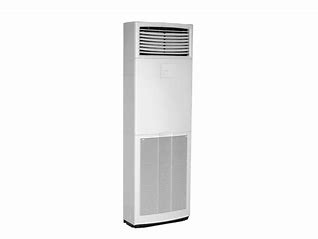
Pros
- Compact design: Tower air conditioners have a small footprint and can fit into tighter spaces, making them a good choice for people with limited floor space.
- Movable: Tower air conditioners are frequently built with wheels, which makes it simple to move them from room to room as needed.
- Affordable: Tower air conditioners are frequently less expensive than other air conditioners, making them a cost-effective option for people who need cooling in smaller spaces.
- Simple installation: Most tower air conditioners only need to be plugged into an electrical outlet, necessitating little to no structure.
Cons
- Limited cooling capacity: Tower air conditioners are made for smaller rooms and might not be able to cool larger rooms or open-plan areas adequately.
- Nosier: Tower air conditioners have the potential to be noisier than other air conditioner types because the entire unit is housed inside the room as opposed to having an outdoor unit.
- Tower air conditioners might be less energy-efficient: Tower air conditioners might not be as energy-efficient as other types of air conditioners, resulting in higher electricity costs.
Tower air conditioners are a good option for those looking for a portable, affordable cooling solution for smaller rooms or apartments. Their small size and ease of use make them a popular choice for many customers, even though they may have a limited cooling capacity and be noisier than other air conditioners.
6. Ducted Air Conditioners:
An entire building or residence can be cooled with a ducted air conditioner thanks to a network of ducts and vents. Larger homes or commercial properties are frequently where these units are used.
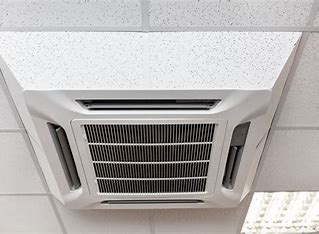
Pros
- Even cooling: Ducted air conditioners offer even cooling across the entire structure, removing hot spots and ensuring constant temperatures.
- Discreet: Ducted air conditioners offer a discrete and unobtrusive cooling solution because they are installed out of sight, with only the vents visible.
- Customisable: The number and size of the ducts and vents on ducted air conditioners can be adjusted to fit the unique requirements of the building or home.
- Quiet operation: Ducted air conditioners are made to run quietly, and they do so by placing the outdoor unit outside, away from the building.
Cons
- Costly: Ducted air conditioners typically cost more than other air conditioner types, which may deter some buyers.
- Professional installation: Ducted air conditioners must be professionally installed, which can raise the overall cost.
- Routine maintenance: Ducted air conditioners must undergo routine maintenance to operate at their best, which can be time-consuming and expensive.
Ducted air conditioners are an excellent choice for those who value a discrete and customisable cooling solution and want even cooling throughout a building or home. Larger homes and commercial properties frequently opt for them despite their higher initial cost and need for professional installation and maintenance due to their consistent temperatures and quiet operation.
How Can You Choose the Right Type of AC System?
Given the many options on the market, selecting the best type of air conditioning system for your residence or place of business can take time and effort.
When selecting the best kind of air conditioning system, take into account the following factors:
- Size of the area: The site size you need to cool is the first and most crucial factor to consider. The size of the space will determine the type and size of the air conditioner that will provide optimal cooling.
- Energy efficiency: The air conditioning system’s energy efficiency is another crucial factor. To save money on energy and lessen your carbon footprint, choose a system with a high energy efficiency rating.
- Cost: The air conditioning system’s price should also be considered. Consider the initial, maintenance, and operating expenses to determine if the system is within your budget.
- Installation requirements: There are various installation requirements for air conditioning systems. Others might be simple to install, while some might need professional installation. Before choosing, take into account the installation costs and requirements.
- Noise level: The air conditioning system’s noise level is also crucial, particularly if you intend to install it in a bedroom or quiet area. Choose a relatively quiet one to ensure the system won’t interfere with your sleep or work.
- Maintenance requirements: Before purchasing, consider the air conditioning system’s requirements. While some systems need routine maintenance, others only need occasional care. Choose a plan that suits your maintenance preferences and lifestyle.
You can quickly narrow down your options and select the ideal type of air conditioner for your home or office by considering the above factors.
Conclusion:
Selecting the appropriate type of air conditioners system is essential to ensure that your living or working space is comfortable and energy-efficient. Before making a choice, it’s necessary to consider several factors, including room size, energy efficiency, price, installation requirements, noise level, and maintenance needs.
Here are a few extra recommendations to aid you in selecting the best air conditioning system:
- To reduce energy costs and maintain temperature control in your space, look for systems with programmable thermostats.
- To enhance the air quality in your home or office, think about systems with air purifiers or filters.
- To protect your investment and guarantee access to support and repairs should you need them, choose a system with a warranty.
You can choose the best air conditioning system for your needs by considering these extra suggestions and the previously mentioned factors. To have a comfortable and affordable cooling solution, feel prioritizing energy efficiency, noise level, and maintenance needs.
